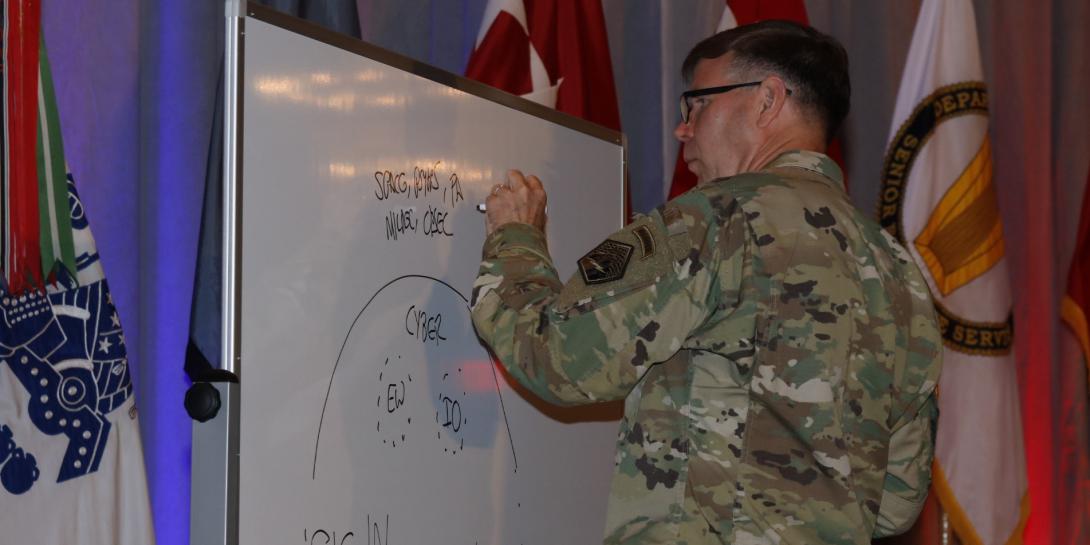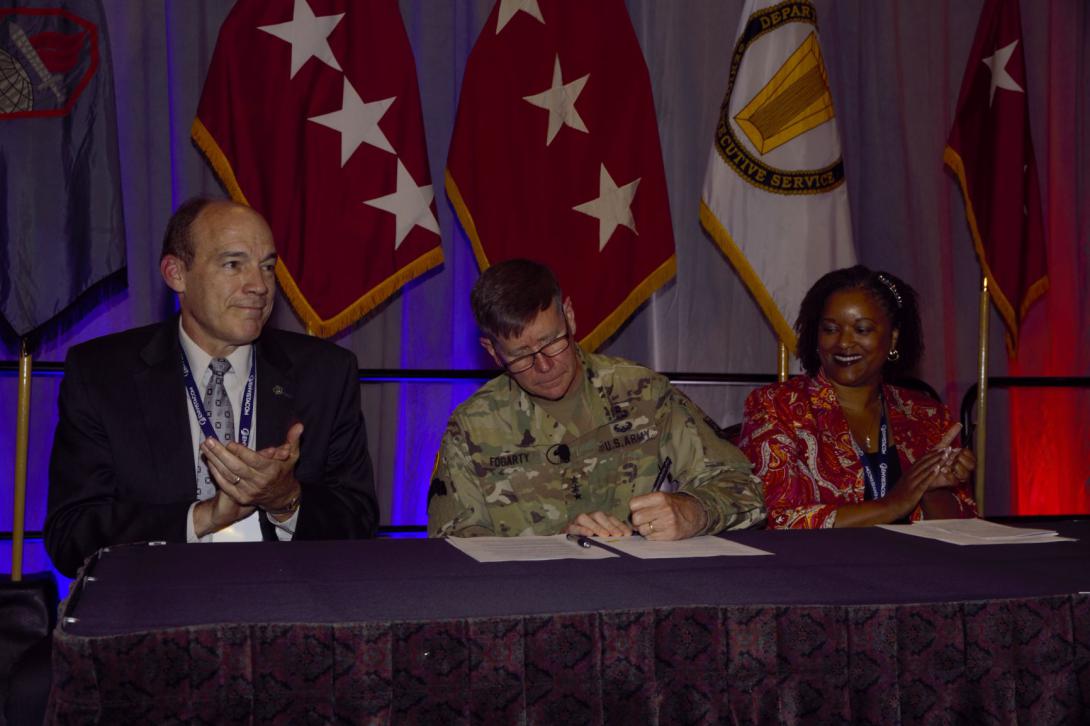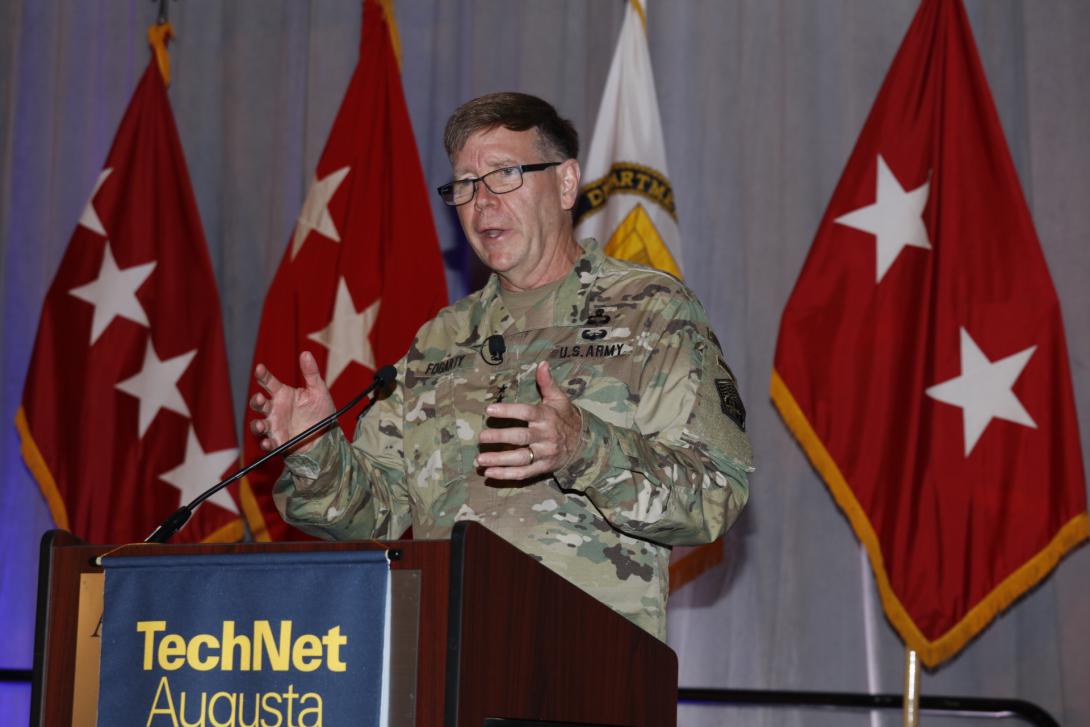An Imperative for Action Brings On Cyber Advantages
Today’s military operates in a congested and contested cyber environment, and to have the advantage over its adversaries, the military must be able to integrate a variety of cyber-connected elements. Keeping the advantage depends on the ability to balance the level of precision required, to operate with speed, to accept nonconventional means and to tolerate less-than-perfect solutions. In an environment just short of war, there is no place for bureaucracy.
With his markers and white board on hand, Lt. Gen. Stephen Fogarty, USA, commanding general, U.S. Army Cyber Command, began his address to the attendees at AFCEA TechNet Augusta. His first step was sketching out how he believes cyber operations elements fit together. Within this context, he discussed the upcoming name change from Army Cyber Command to Army Information Warfare Command and the command’s relocation to Augusta, Georgia.
“We are going to spend a lot of time making sure we have the capabilities we require, and we will set the framework, start to operate and adjust,” he explained, stressing that the military must make it possible for commanders to operate faster than our adversaries. Real-time situational understanding in the informational environment needs to be possible.
Industry, academic and international partnerships are critical, the general emphasized. “We don’t only have to match, we have to surpass our adversaries, and we have to develop the capabilities to do so ourselves.
“If I can create understanding at speed,” the general added, “I can reduce the process,” and he called on industry to help him do that. The Army, he added, is making a big investment to get it right and deliver as fast as possible.”
As part of developing the needed capabilities, Gen. Fogarty announced the formation of the cyberspace effects civilian career program, and he then signed the papers to establish the advisory board for what will become CP-71.
“This is evidence of the Army’s commitment to grow the cyberspace operational force in a way that is enduring,” Gen. Fogarty said. It will allow a formal framework and program to recruit, develop and retain those members of our work force who are conducting cyber space effects. The program will develop skills for the information and intelligence communities that are central to information warfare, he added.







Comments